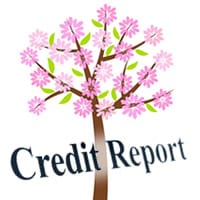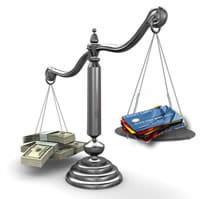One of my clients told me that a 6-figure income would give her everything she wanted. She could pay the bills, have a home, save for the future, travel, and indulge in all the little things.
I gently pointed out that there are a lot of 6-figure earners who wished they made more money. A bigger income means a bigger mortgage and a more expensive lifestyle. High earners often find themselves pushed to their budget limits, balancing debt against what feels like a meager paycheck.
That’s human nature for you. We pick up more than we can carry, then blame nature for not gifting us with extra arms. We grab for everything, instead of just those things that make us feel fulfilled.
You can have it all (maybe not at once), as long as you know what having it all means to you. The key is in knowing what will really make you happy, having a plan, and working towards your goals.
When my client dreamed of making 6-figures, I believe she was really fantasizing about the freedom of living debt-free, with money in the bank for travel, retirement and a comfortable home life. But, without a plan and goals, she would have fallen into the big-earner/big-spender debt trap.
You may already know what you want, but, if you are living your life day to day with no goals, how do you expect to get to where you want to go? You may not even know if you are headed in the right direction without action steps to judge your progress.
The first step is to set a goal. What is it? Do you want to eliminate your debt, save for a vacation, save for a down payment on a home, start an emergency fund, save for retirement, your children’s education, or something else? Remember the goal must be reasonable and measurable.
Examples of wishy-washy goals:
- I want to get out of debt by the end of the year (may not be reasonable).
- I want to have an emergency fund (not measurable).
Examples of reasonable and measurable goals:
- I want to pay an extra $100 per month, and stop creating new debt, to eliminate my debt in two years.
- I will save $20 per week to build an emergency savings of $1,000.
This is Step One: determine your goal(s). Write them down and put them where you will see them every day.
In our next Quick Tips, we’ll discuss Step Two and the action steps you’ll take to have it all.









